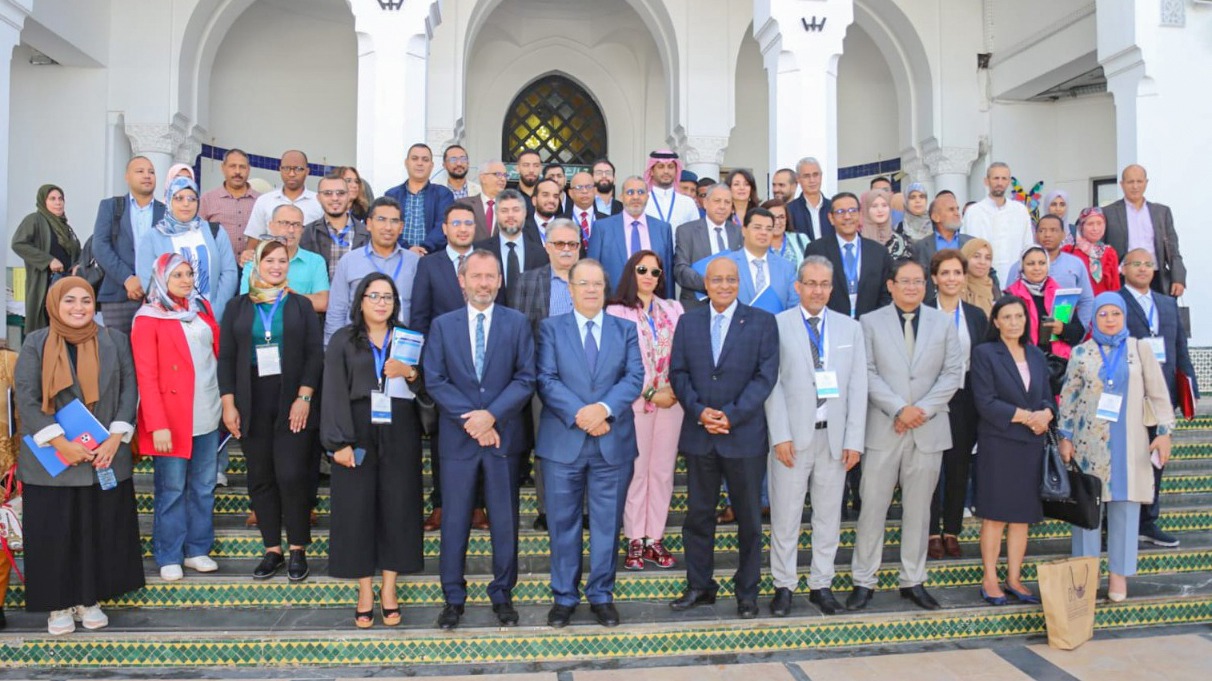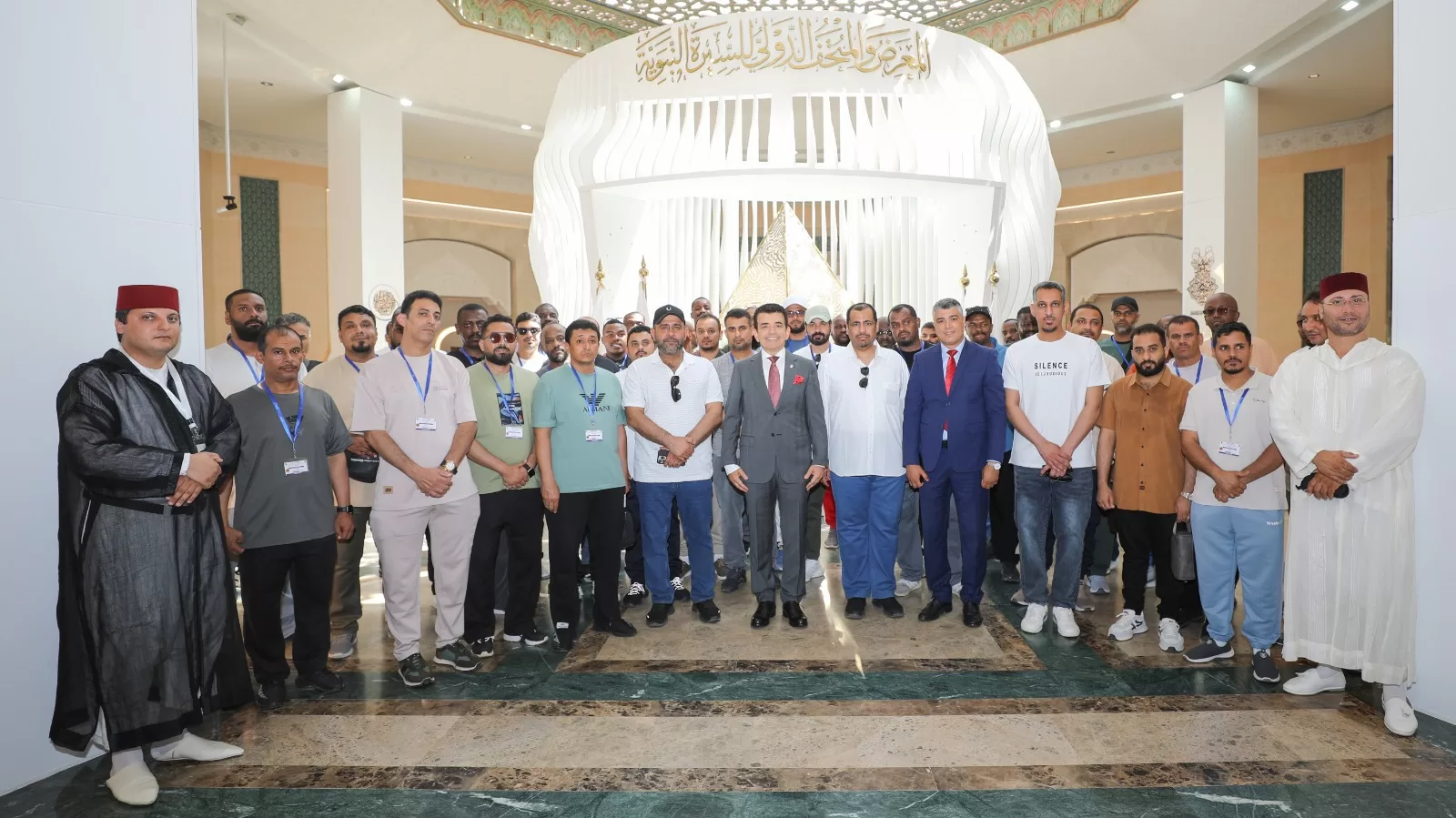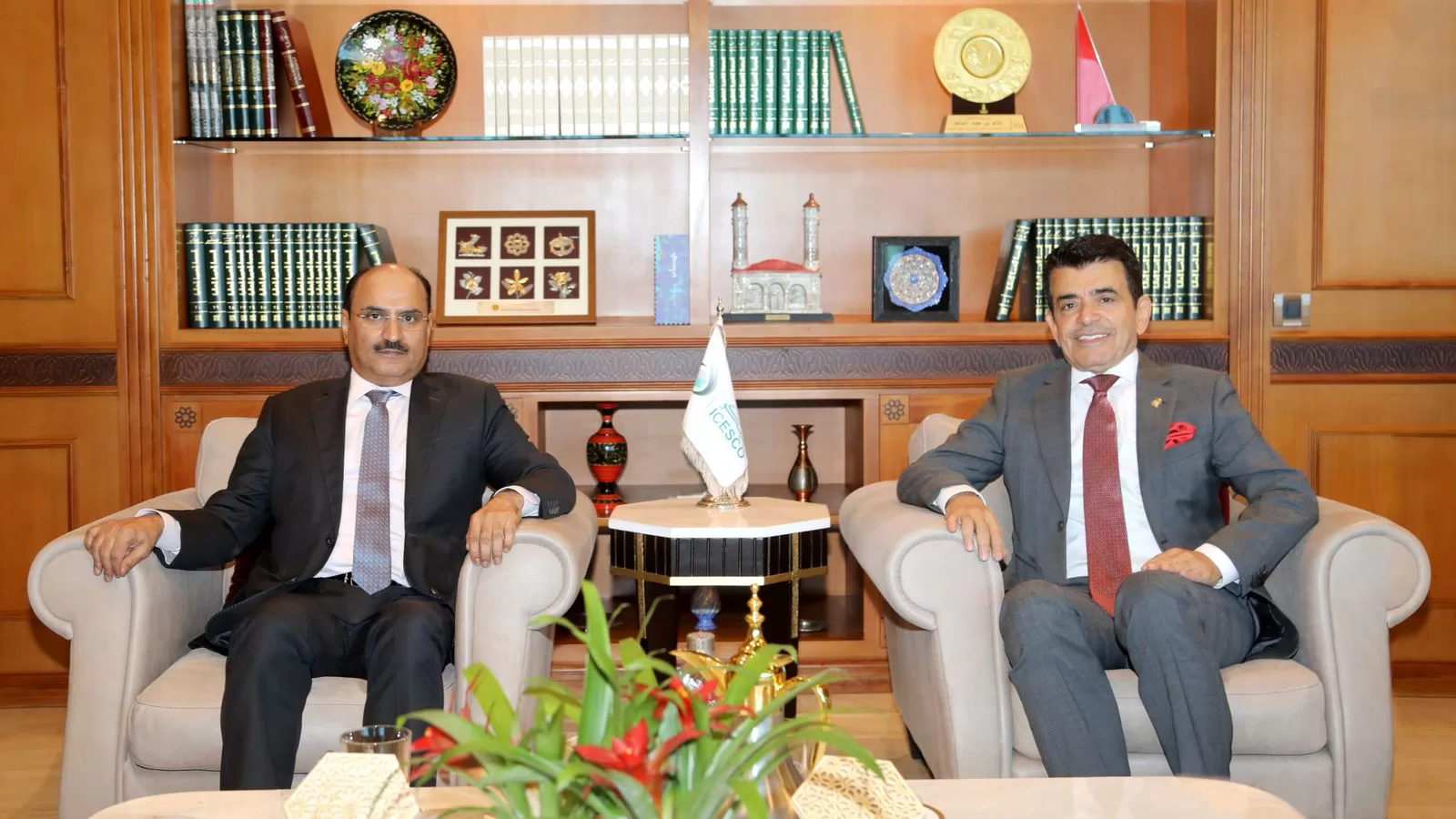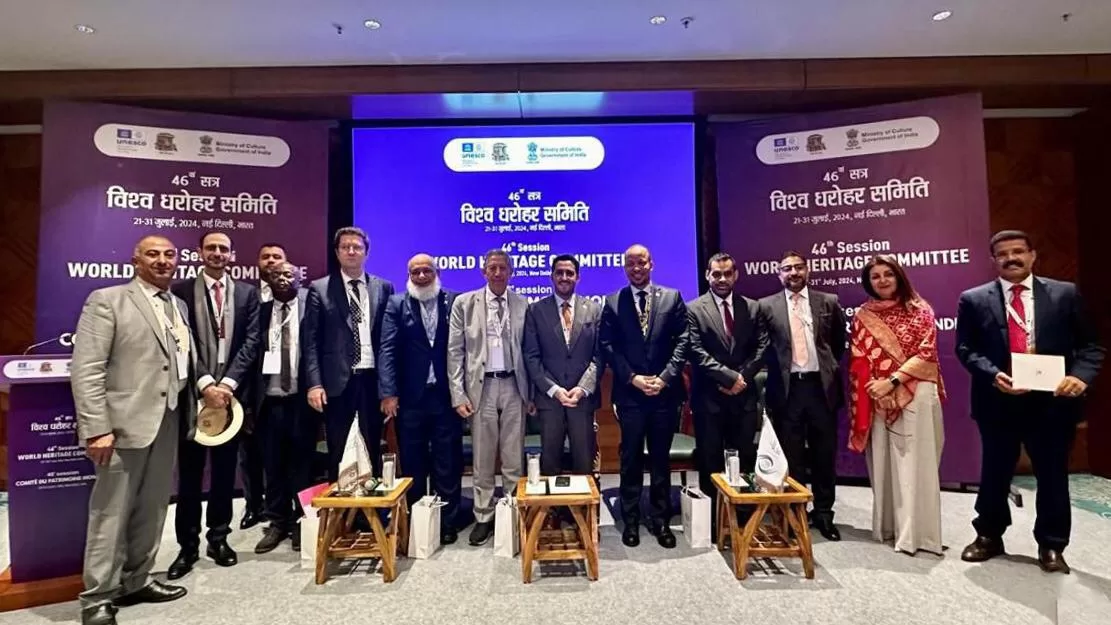
ICESCO Takes Part in International Conference on “Arabic Language, Beyond Legacy” in Rabat

25 October 2022
The Center of Arabic for Non-Arabic Speakers at the Islamic World Educational, Scientific and Cultural Organization (ICESCO) took part in an international conference under the theme “Arabic Language, Beyond Legacy,” organized in commemoration of the United Nations Day by the United Nations Educational, Scientific and Cultural Organization (UNESCO) through its regional office in Rabat and the Moroccan National Commission for Education, Science and Culture, in partnership with the Sultan Bin Abdulaziz Al Saud Foundation in the Kingdom of Saudi Arabia.
Dr. Majdi Bin Haji Ibrahim, Head of the ICESCO Center of Arabic for Non-Arabic Speakers, Dr. Youssef Ismaili and Dr. Anas Hussam Al-Nuaimi, Experts at the Center, and Ms. Somia Djacta, Director of ICESCO Office at UNESCO, represented the Organization during the two-day event that is taking place at the headquarters of the Faculty of Letters and Human Sciences in Rabat.
In his address at the opening session, Dr. Majdi emphasized the role of Arabic in fostering understanding among peoples by promoting intercultural communication, building bridges between civilizations, cultivating amity, consolidating peace and security, and renouncing violence and extremism. “Serving the Arabic language is at the forefront of ICESCO’s priorities. The Organization works on reinforcing the Arabic language’s status as a symbol of the Islamic nation’s cultural identity, a reservoir for its immortal heritage, and a hallmark for its civilizational, intellectual and cultural distinctiveness,” noted the ICESCO official.
He also reviewed ICESCO’s contributions to the service of the Arabic language in its non-Arabic speaking Member States, and its efforts to disseminate the language and strengthen its presence in the Islamic world and the world at large, by offering relevant competent authorities, institutions and individuals, the needed educational and academic services and technical advice.




